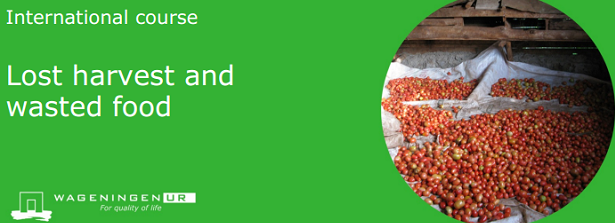
Stark contrasts exist in how we manage the food we have available. While in developing and transition countries food losses mainly happen post-harvest, in the urban and wealthier communities good food is wasted in retail stages of the supply chain and by consumers. Optimising the ‘farm to fork’ chain can contribute significantly to food security and sustainable food production.
Managing the crop supply chain for increased food security
Strengthening your insights to reduce the food lost
Estimates indicate that 30% to 40% of the food produced globally is lost postharvest or wasted because it is never consumed. This is neither a sustainable use of the world’s resources nor will it help to feed the 9 billion people expected in 2050. Complete utilisation of food may remain science fiction, but there are many possibilities for a drastic reduction of losses. A conducive policy environment, and actively involved public services and private sector are prerequisites to reduce the amount of ‘missing’ food. In this course, we will look at ways to minimise losses, reduce food waste and explore alternative uses. Ultimately, reduction of losses contributes to food security.
During the course we will critically analyse the crop supply chain, and design sustainable alternatives with special attention to harvest practices, storage, spoilage and food waste management. The role and responsibilities of the various stakeholders will be addressed. The training approach is interactive: we will use a mixture of lectures, discussions, group work and field trips with the aim to expose you, as far as possible, to all aspects of post-harvest and waste management. Meeting course colleagues from other countries, but with similar interests, leads to exchange of experiences and mutual learning. Participants’ case studies are the basis of the group work.
Course objectives
Upon completion of the course you will:
- understand the link between primary production, post-harvest management, the supply chain and food security;
- be familiar with alternative uses of food waste;
- have insight into the public and private responsibilities in the supply chain for post-harvest handling and food waste management;
- be able to design solutions for minimising the amount of ‘missing food’, from smallholders to multinational retailers.
Target audience
The basic prerequisite for participation in the course is active interest and professional experience in this field. Participants should be proficient in English, and have at least a BSc degree or an equivalent academic qualification.
Fellowships
A limited number of fellowships is available from Nuffic – the Netherlands Fellowship Programme (NFP) & MENA for nationals of certain countries. Applications for fellowships should be submitted before 24 March 2015.
More information on NFP fellowship.
- This event has passed.

